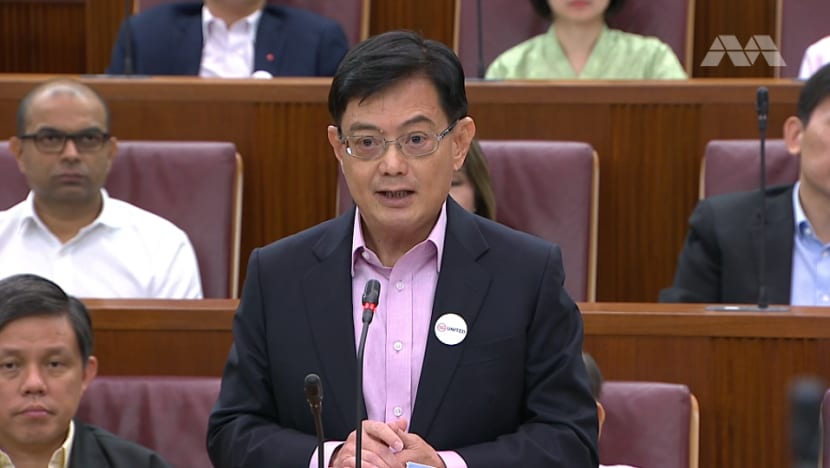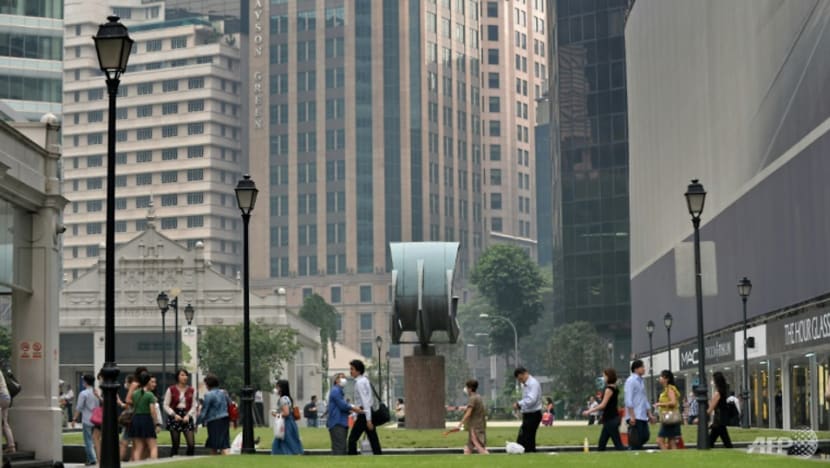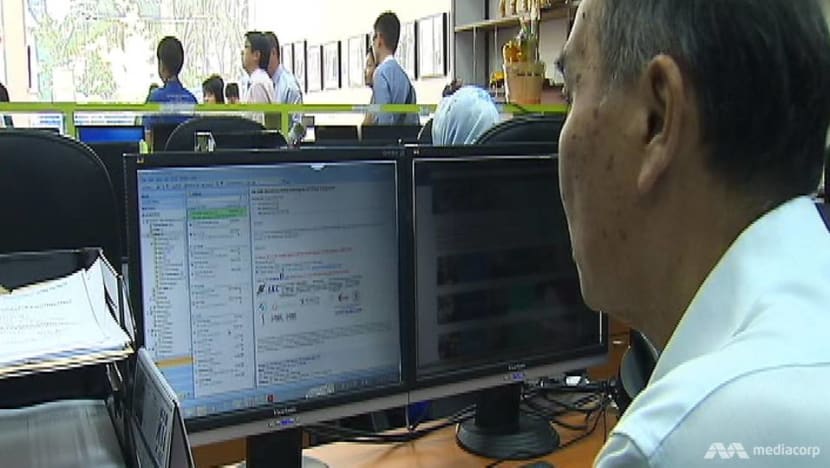commentary Commentary
Commentary: Don’t waste Budget money. Here’s how to stretch your SkillsFuture dollars
Retraining shouldn’t be this painful, so capitalise on the SkillsFuture movement to transform how you work, says Crystal Lim-Lange.

(Photo: Unsplash/rawpixel)
SINGAPORE: If you want to amaze someone in a foreign country, tell them about Singapore’s SkillsFuture initiative.
When I speak about it at conferences on the future of work, people from Kazakhstan to the US tell me that it sounds like some kind of miracle to wake up one day to find a new bank account in your name with free money to spend on upgrading yourself.
And when I tell them many Singaporeans don’t take advantage of this money, their expression turns to horror. “Just give it to us!” they say, shaking their heads in incredulity. “We will use it!”
Deputy Prime Minister and Finance Minister Heng Swee Keat, in rolling out Singapore Budget 2020 on Tuesday (Feb 18) announced even more SkillsFuture benefits and support for companies to retrain workers and redesign jobs.
A one-off S$500 SkillsFuture top-up will be made available for every Singaporean aged 25 and above, while Singaporeans aged 40 to 60 will get an extra S$500 top-up.
LISTEN: Singapore Budget 2020: A report card

While such policy enhancements to beef up support for retraining are great, it is up to us to make sure we use these bonuses wisely. So, how can we get the most bang for our SkillsFuture buck?
1. THINK OF IT AS OPTIMISING YOUR LIFE AND WELL-BEING
When I ran a careers centre at a university, I discovered it was very hard to get people excited about going for “career development courses”. Somehow when they heard the word “careers”, they thought “I’ll do that if I really need to later”.
It’s a pity more aren’t excited about learning because they see it as another chore or burden, but could benefit if they saw learning as a way to optimise their lives and derive joy.
“When you learn, you feel good. You’re more positive and that helps to build your confidence and that should have an impact on your health too,” 71-year old veteran ex-banker Noor Quek once said to me.
READ: Commentary: Why aren’t there more Singaporean CEOs?
“The individualised approach of Skillsfuture is a good thing because it gives people a choice. But we also need to shift people from thinking lifelong learning is about academics or just retooling. It is actually a culture. There are many intangible benefits of a learning culture to well-being,” Martin Tan, Executive Director of Majurity Trust, a philanthropy focusing on better job matching shared with me.
2. REMEMBER THAT PEOPLE LIKE US DO THINGS LIKE THESE
Marketing legend Seth Godin often says that the secret of getting people do things is these six words: “People like us do things like this.”

When I log on to Amazon, it tells me “People like you enjoyed reading this” or “If you liked this, you may also like these other options”. Spotify shows me in real-time what my friends are listening to.
Yet there is limited information telling me about what real people are doing with SkillsFuture.
“I’m not sure you can find information on how people are actually using their SkillsFuture credits, and how they actually monetised the skills they learned. That would be more tangible,” technology recruiter Randy Lim told me.
Another recruiter in the finance sector told me: “We want to know what uptake have we had, at what levels, which sectors, and how the people who have been successful with this scheme have grown their capabilities.
READ: Commentary: The future just got brighter for aspiring Singapore tech entrepreneurs
READ: Commentary: The future is tech but where is Singapore’s engineering and IT talent?
It would be interesting then, for Government not just to collect data, but use that data to humanise the SkillsFuture experience for people.
How can we curate personal recommendations to Singaporeans so that they feel more connected to SkillsFuture and build vibrant learning and interest-based communities so being passionately curious becomes culture?
Hanging out with your community online or in person also leads to opportunities through happenstance.
On our part, we can create tribes, meeting up with like-minded individuals keen on exploring themes we are interested in. Or simply ask our friends if they would like to join us for a particular course. Having friends join you creates accountability and also makes the process more enjoyable.

3. RETHINK HIRING FOR SKILLS TO HIRING FOR MINDSET
Given the speed of industry disruption and innovation, we are now moving towards a new norm of a permanent skills gap.
Entirely new jobs are being created at such a fast pace that both employers and jobseekers will need to forget the old idea of a perfect match of skills to scope, and hire based on broader metaskills and character traits while accepting of the reality of constant training on the job.
Many employers were happy to hear a SkillsFuture Enterprise Credit of S$10,000 per company to support job redesign and talent development. It is great news for companies to have more resources to help people stay in their jobs longer while still retaining the flexibility to decide what training suits them best.
READ: Commentary: Do not fear retrenchment. Four tips for working professionals in a downturn
READ: Commentary: The generalist-specialist job distinction is holding many back
The World Economic Forum predicts that the average employee will need 101 days of retraining and upskilling in the period up to 2022.
Employers, especially SMEs, must realise that investment in talent is a must, not a “nice to have”. Every person who leaves a firm costs the business six months or more of that person’s salary to find and train their replacement. And the number one reason that people leave their jobs is feeling that they are not growing or developing.
4. SHAKE UP HOW FIRMS HIRE
Building an optimised workforce requires a grenade to be tossed into traditional hiring practices.
There are no shortage of employers and Human Resources trying to find talent, but the problem is finding a good fit.

A typical HR recruiter sees 300 CVs on their desk for a position, and they need to make a shortlist of who to call. The first cut is the most brutal, and most hirers just use the old methods: Which university did you go to? What were your grades like? How old are you?
Research has consistently demonstrated that these processes are ineffective, biased and have little correlation to actual success at work or cultural fit.
Yet, many hirers persist with these same old methods, which overlook many potential jobseekers who may have had relevant training or life experiences.
One initiative to rethink hiring is spearheaded by the Tangent Initiative, which is forming an alliance of companies, including Standard Chartered, DBS, Dymon Capital and Egon Zehnder, to establish a community of forward-looking companies committed to progressive hiring practices and piloting new hiring methods, such as psychometric tools for applicants.

5. CLOSE YOUR IDENTITY GAP
In my experience, those who tend to struggle the most in careers and life are the ones with strong, fixed notions of who they are. Their minds have calcified, hardened with old beliefs.
Economist Laurence Katz called this the “Identity Gap”, when he saw a phenomenon of people unwilling to change because they had a fixed, backwards view of what their identity was.
To optimise ourselves and our potential, we don’t just need skills installation, we need a mindset transformation.
READ: Commentary: Junior college or polytechnic after O-Levels – does it matter?
READ: Commentary: The rise of the digital economy – and how education may be transformed
We need to pair reskilling from technical domain experts with training from transformation experts – mentors, coaches, and psychologists for example.
While having a coach or therapist was once thought of as a sign of weakness, now that stigma is vanishing quickly. Randomised control tests have also shown 85 per cent of coached executives are better off than those who did not receive coaching, when assessed not just by themselves but also by their line managers.
Now, it is commonplace for CEOs and leaders to talk about their own coaches, and liken themselves to high-performance athletes getting training from experts in human optimisation. A growing number of companies like Cisco now offer employees round-the-clock access to therapy or counselling.

I often encourage people to view going for coaching or counselling in the same vein as going to your dentist. Career health is just health. Mental health is just health. Take care of your health because it is your ultimate asset.
The Government has done an enormous amount of heavy lifting with a thoughtful Singapore Budget 2020 that has addressed many of the issues of the “Skills Gap”, but employers and individuals must also close this “Mindset Gap” if we are to fully unlock the power and potential of the SkillsFuture Movement.
Crystal Lim-Lange is CEO, Forest Wolf and co-author of Deep Human.















